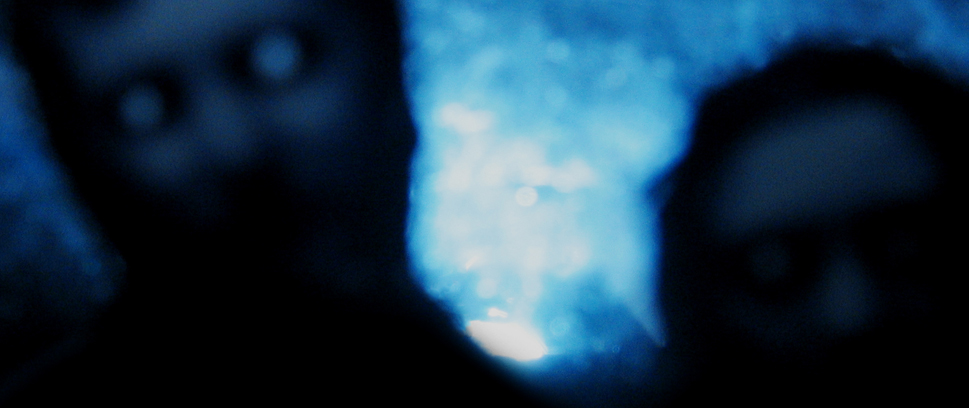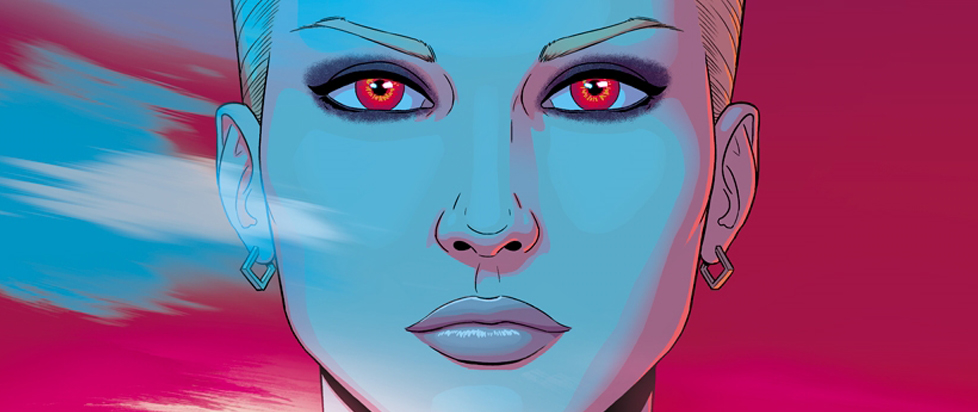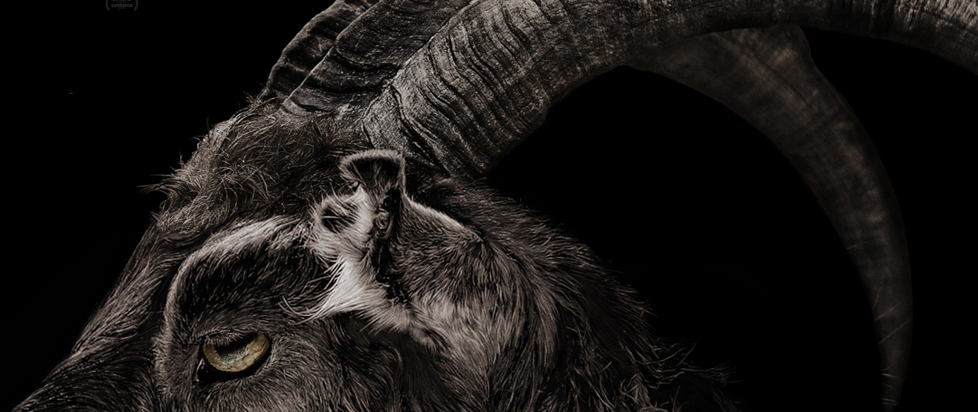
The Best Movies of 2016
To be part of Team Unwinnable is to be part of the savviest of critics circles. As I tallied the incoming nominations for Best Movies of 2016, the depth and the breadth of my fellows’ suggestions never failed to impress me.
The final list runs the gamut of cinema: there’s animation, horror, sci-fi, comedy, straight drama, psychological thrillers, period pieces, a superhero tale and a Western. If tasked to pick out a thread of commonality between them, I’d say each one very astutely holds a mirror up to the troubles we struggle with today. It can be argued that all cinema does this, always, but between Zootopia’s interpretation of race-relations in America, Deadpool’s playful subversion of the ever-present and ever-popular superhero flick and The Witch’s examination of the complicated relationship between religion and gender, these films do so particularly well.
The ten selections you’ll find below are each an excellent representation of that shrewd commentary, and here’s hoping the thoughtful words of this scrappy band of pop culture connoisseurs will convince you try any you haven’t already experienced.
– Sara Clemens

Zootopia
Since watching Zootopia, multiple friends have asked me what I thought of it, knowing I consume animated films on the regular. And each time I say the same thing: it’s an intelligent film. The way it tackles the implications of discrimination without being ham-fisted, wrapped around the nucleus of what feels like a classic caper with subtle cues for viewers to pick up on.
The film itself is a realization of the central plot theme of stereotypes and boundaries, where much like The LEGO Movie before it, expectations of what an animated film can be are challenged. In addition to good pacing and wonderful animation leading to an immersive universe, its style of humor is well-executed and forward-thinking, instead of following what could have been an easy way out (low-hanging animal jokes and the like, à la Madagascar). And the integration of pop culture, rather than being gimmicky and forced, gels with an already consistent baseline of clever humor.
My favorite takeaway is how Zootopia smartly tackles a social underbelly, of past behavior being the best predictor of future actions; that a past experience or life circumstance renders a person incapable of breaking from an external definition or predetermined “eventuality.” This is well-encapsulated by Nick’s pointed line:
“If the world’s only going to see a fox as shifty and untrustworthy, there’s no point in trying to be anything else.”
Through and through, the film has its finger on the pulse and is exceptionally careful not to have this and other big lessons lost on the audience, relaying these with model, show-don’t-tell storytelling.
Yes, Zootopia is an intelligent film, one that treats its audience as smart in the process — to brilliant payoffs.
– Jose Cardoso

Moonlight
Moonlight is a story less about what is said on screen and more about the moments in-between. Rather than an explosively evocative series of dialogue and situations that tug on the audience’s heartstrings and plays wonderfully on-stage at an awards show, Moonlight takes its time as an ethereal look into the life of one young man. In many ways, Barry Jenkins’ coming-of-age tale deals with universal themes like romance, youth, and growth, but the specificity of Moonlight’s storytelling makes it one of the most essential films of the modern era.
The audience follows Chiron, a black boy raised in Miami, as he slowly becomes a man, grappling with his sexuality and the pressing conditions of poverty that surround the people he holds dear. Moonlight is told in three distinct chapters and, when the final act begins, it conjures an inescapable sense of regret and commentary on the reprehensible conditions of our society that can bend a vulnerable soul until he breaks. The film demands attention, patience and empathy, while rewarding multiple viewings of its timeless story, rooted in an age of strife and urgency.
– AJ Moser

Hell or High Water
It speaks to the power of Hell or High Water that many of the ingredients in this film have been seen elsewhere in cinema on numerous occasions, yet this film still made such an impact. Wonderful performances and beautiful cinematography frame this heist film that also manages to be a neo-western. It also belongs to a fantastic run of movies scored by Bad Seeds members Nick Cave and Warren Ellis – dark takes on the barren American landscape full of unique beauty and danger.
While Chris Pine and Jeff Bridges deliver landmark performances, the same can be said for Ben Foster and Dale Dickey. Once upon a time, westerns and heist films ruled the roost. As far as cinema genres go, it makes me wonder if we’ll see such a beautifully crafted superhero film 30 years from now.
– Michael Edwards

Green Room
Jeremy Saulnier’s Green Room left me profoundly uncomfortable. It’s the story of a traveling rock band that winds up playing a gig at a neo-nazi roadhouse because they need the cash. On their way out, Anton Yelchin’s Pat accidentally witness the aftermath of a murder and the whole band gets locked in the venue’s green room. It’s a nightmare scenario for probably every traveling band.
It’s beautifully shot and paced to perfection. Anton Yelchin, Imogen Poots, Alia Shawkat and Patrick Stewart lead a cast of damn terrifying actors. The band is locked in the room with a Nazi goon, the killers’ next intended victim, a corpse and a gun. Saulnier’s camera captures the room’s claustrophobic tension. The violence is brutal – there isn’t a shred of glamour in this picture. It’s the most punk movie since Penelope Spheeris’ Suburbia.
It’s difficult to watch this film knowing that it’s one of Yelchin’s last performances. He’s perfect as the band’s idealistic front man – so lost in his own head he blindly stumbles into something far beyond his and his friends’ capabilities. He’s a joy to watch. He frustrates everyone but it’s easy to see why they’re all pals.
Patrick Stewart plays Darcy, the owner of this backwoods white nationalist dump. Stewart never met scenery he didn’t love to chew but he’s eerily calm in this film. His banality is chilling. He gives the impression this isn’t the first time he’s done this sort of thing and he has no regret about doing it again. Most of the kids at the show don’t know about Darcy and his red-laced crew of thugs’ criminal proclivities so he fakes a pipe problem to get the kids out of the club.
When Darcy clears the club, he tells the crowd to come back in two days. “Remember,” he says, “it’s not a party, it’s a movement.” They look up to him and they willingly leave the venue.
The violence and gore in the film is disturbingly realistic. A character’s hand gets partially hacked off and there is nothing artistic about it. It’s a clinical special effect – this is what a partially hacked off hand would look like and it is gross!
Green Room is not the feel good movie of the year, especially given the results of this year’s U.S. Presidential Election. It’s depressingly prescient, but its true legacy will be in its application of pressure on the audience and its characters. It’s one sharp box-cutter of a thriller that sticks in your guts.
– Ian Gonzales

Kubo and the Two Strings
There’s no denying the pedigree behind Laika Entertainment, the stop-motion animation studio responsible for films like Coraline and ParaNorman. Its latest effort, Kubo and the Two Stings, is its best to date and cements it as one of the most important active film studios.
Kubo tells the story of a young boy with musical magic powers who sets off on a quest to reclaim his father’s armor and avenge his fallen village. The story is filled with fun characters and touching moments, but it’s the art and animation that take center stage here.
With next to no film studios practicing stop-motion, Laika shines like a beacon in the dark. Like Studio Ghibli, Laika has come to master its art. That mastery is on full display throughout the action scenes in Kubo, making it the most visually stunning film of the year. The story strikes some tired notes, but you’ll be too caught up in the visuals to care.
– Sam Desatoff
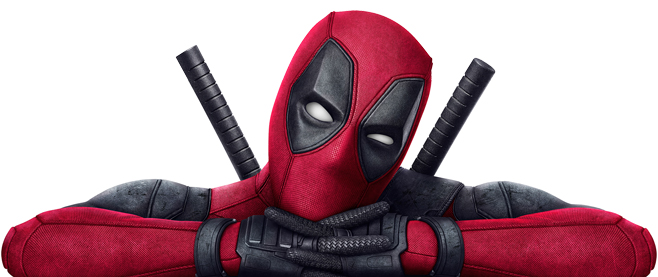
Deadpool
When Juice Newton recorded the song “Angel of the Morning” in 1981, it is unlikely that she thought it would accompany the credits to a movie that took such joy in wanton destruction it sought to redefine the superhero genre. Superheroes, as Deadpool seeks to remind us in his introductory narration, are the good guys and do not turn their opponents into shish-kebabs. Despite this, alongside the country rock refrain of “just touch my cheek before you leave me, baby” Deadpool manages to slice and dice his way through a few dozen carloads of opponents with the glee of a manic child on Christmas Day.
Smart? No. This anti-hero addition to the superhero canon is barely even passably original, with Ryan Reynolds playing yet another costumed crusader (he has previously had a turn as Deadpool, as well as the Green Lantern) out to save the girl from the evil clutches of a British asshole. But what Deadpool lacks in originality it makes up with in sheer joy, both in the form of supporting characters and gleeful humor that oozes misshapenly like so much pop-culture flavored Gak, self-aware ‘til the end of its place in an overwrought pantheon.
– Amanda Hudgins

The Nice Guys
The Nice Guys isn’t an unexpected film, it’s a Shane Black movie through and through, but it’s an exemplary Shane Black movie. Combining his smart visual sense with a pair of charismatic stars and a pitch black script whose 1970s setting feels all too familiarly modern.
As much as Black’s writing and direction define the movie, it’s the two central performances that truly sell the film. Russell Crowe is playing his usual gruff badass, but twisted ever so slightly to evoke laughs rather than menace. He’s sardonic and haunted rather than aggressive. While Ryan Gosling plays against his usual suaveness, pulling off one of the best physical comedy performances since the days of Buster Keaton. Gosling’s body is elastic and it’s the secret weapon of the film, guaranteeing laughter while simultaneously reinforcing the violent stakes that keep the plot moving.
The Nice Guys is a comedy laced with violence and malice, a twisting noir shot through with comedic gags, and a movie about hitmen and private dicks with a serious appeal to environmental concerns. It’s a whole lot of things, but it’s always a movie made by Shane Black, and a damn fine one at that.
– Logan Ludwig

10 Cloverfield Lane
There’s more to 10 Cloverfield Lane than just an alien invasion and a psycho survivalist. Beneath the claustrophobic nightmare that makes up most of the film’s plot lies the framework of what it’s like to survive and escape an abusive relationship. Unlike the original Cloverfield, this one takes place in one location with three characters and creates a rift of tension that flows throughout the entire film.
John Goodman, without a doubt, delivers a great performance as a paranoid survivalist intent on escaping the invasion via his underground bug-out box and Mary Elizabeth Winstead shines as victim-turned-rebellious-fighter in this tense, apocalyptic view of a world overrun by aliens.
– Ken Lucas

Arrival
Arrival is a movie about a bunch of aliens coming to Earth and trying to communicate with us. It is about a lot of other things, too – hope, love, building a better future – but at its core, Arrival is a movie about grammar lessons and vocabulary quizzes. That it is a gripping, edge of your seat film that sticks in your head for weeks after is both an accomplishment and a surprise.
Except, maybe it isn’t all that surprising. Communication is a wonder we take for granted. Our heads are full of complicated ideas and feelings. Imparting them in any way, let alone accurately or beautifully, is a triumph for our species. Arrival ponders how miscommunication can be disastrous, how our history is strewn with blood and carnage thanks to using the wrong vocabulary and grammar. Yet it comes away hopeful. We are better than we were; we will be better than we are, because of the ways in which we have learned to connect and converse.
Arrival came to theaters at a time of uncertainty brought about by failures of communication, perhaps the greatest example of this in my living memory. There are lessons we can take from it, and, perhaps, a small amount of hope for the immediate future.
– Stu Horvath
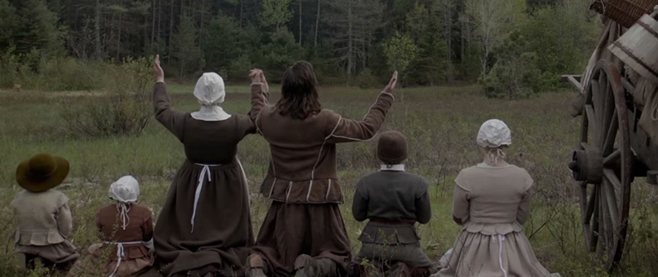
The Witch
As a horror film, I think Robert Eggers’ directorial debut is most obviously effective on audiences who have at least a bit of personal religious history – a sect particularly susceptible to the theoretical horrors of infiltration by the Devil – but it’s the film’s commentary on gender that delivers the coldest chills to my bones.
Anya Taylor-Joy’s Thomasin, the eldest daughter of a family considered too religious for the Puritan settlement from which they’re subsequently banished, is a girl on the cusp of becoming a woman. She’s of an age and gender considered terrifying for society – Puritanical or otherwise. The bloom of her youth is so indefatigable that it remains during the stress of her family’s direst of straits, and her complexion remains pink and creamy even after their crops fail to yield.
Throughout the course of the movie, Thomasin fights against her family’s increasing suspicion – suspicion led tellingly by her mother; older women’s manipulations are to be feared, too – that she’s in league with the evil lurking on the outskirts of their isolated existence. Most of her time onscreen is spent pleading her own guiltlessness even as her parents throw her to the wolves to avoid reckoning with their own mistakes and her siblings project their own fears and desires onto her. She’s an innocent who continually suffers as a sinner, both by the lies of her family members and by her own existence as a woman.
Talk about body horror: how horrifying to be in mere possession of a body that draws both the lustful gaze of a brother and the jealous scorn of a mother. How perversely powerful, too. Ultimately, The Witch’s deepest scares boil down to one chilling question for me: when the people you love tell you over and over that you’re evil for merely existing, how long does it take to believe them? The answer, so often, is not long at all.
– Sara Clemens

